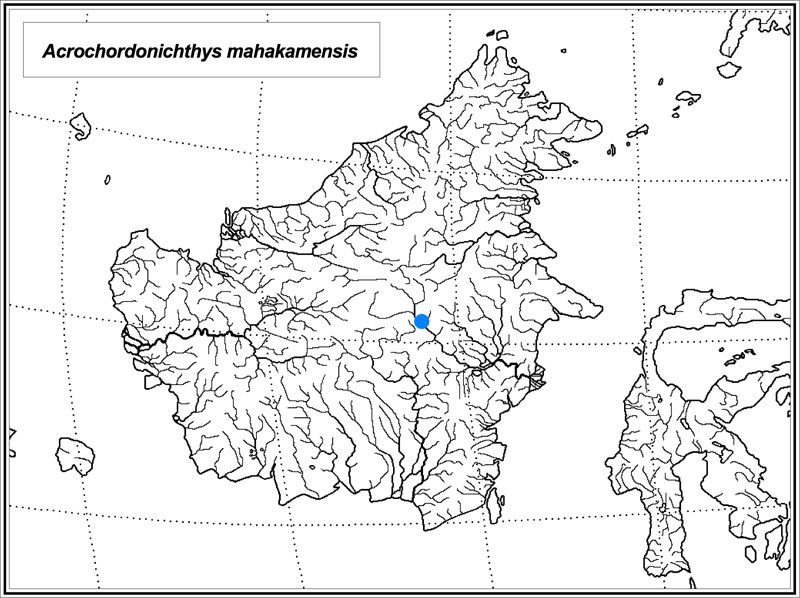
Mahakam River drainage in Borneo
Holotype, 83.2 mm SL, MZB 5952
Acrochordonichthys mahakamensis Ng & Ng 2001
Identification: Acrochordonichthys mahakamensis has a moderately compressed body, a comparatively narrow depressed head (21%SL), a slender caudal peduncle (4-5% SL), and a thick humeral process (maximum width = 13-18% length). The head is covered with small, indistinct tubercules. Tubercules on the body are arranged in 5 or 6 horizontal rows on each side. There is a rounded anterior margin on the anal fin. The dorsal surface of the head and body is cream-colored. Many large dark brown spots are randomly scattered on the dorsal surface of the head. The body has irregular dark brown patches on the sides posterior to the dorsal fin base. The belly, chest and ventral surface of the head are cream-colored and lack spots. The dorsal and pectoral fins are cream-colored with a dark brown band near the edge. The cream-colored caudal fin has a dark brown band near the edge and a dark brown patch at the base of the caudal peduncle. The cream-colored barbels and pectoral spines have dark brown spots on the dorsal surfaces. The premaxillary toothband is not exposed when the mouth is closed. The stout pectoral spine has 6-7 large serrations on the posterior edge. There are 6 branchiostegal rays and 41 vertebrae.
Range: This species is found in the Mahakam River drainage in eastern Borneo.
Habitat: A. mahakamensis is found among woody debris in current in creeks and small to medium-sized rivers.
Similar species: A. ischnosoma, A. guttatus, A. septentrionalis and A. guttatus have a more angular anterior margin on the anal fin, a deeper body, and a more slender caudal peduncle.
Information from Ng, H. H. and P. K. L. Ng. 2001. A revision of the akysid catfish genus Acrochordonichthys Bleeker. Journal of Fish Biology 58: 386-418.
